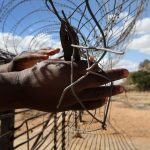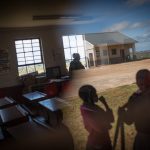No birth certificate? No school
The Centre for Child Law has gone to court to compel the education department to allow 37 undocumented children to attend class while it challenges school admission policies.
Author:
23 January 2019

The academic futures of 37 undocumented children are on the line after the Eastern Cape High Court in Makhanda (formerly Grahamstown) dismissed an interim application to compel the education department to admit them to schools for the year without providing birth certificates.
This interim application was brought by the Centre for Child Law on behalf of 37 children who have been denied admission to public schools because they do not have birth certificates.
The interim application was dismissed by the court on Tuesday morning, meaning these children would remain out of class for the time being. Centre for Child Law senior attorney Anjuli Maistry said they would consider their options, but didn’t rule out appealing to the Supreme Court of Appeal. “We are shocked at and dismayed by the court’s decision. It is completely baffling that the children are willingly being kept out of school by a government which is mandated to consider their best interests. An application for leave to appeal to a higher court will be filed to ensure that the children do not spend any more time out of school,” said Maistry.
Related article:
She said the stories of these children reveal the unlawfulness and unconstitutionality of the admission policies that prevent undocumented children from attending school.
“The Committee on Social and Cultural Rights has described the right as an empowerment right and as ‘the primary vehicle by which economically and socially marginalised adults and children can lift themselves out of poverty and obtain the means to participate fully in their communities’,” Maistry said.
“By preventing their access to school we are condemning the children to a lifetime of poverty and creating a sub-class of persons living in South Africa,” Maistry added.
Temporary relief sought
The interim application is an attempt to ensure the children do not fall any further behind and are able to go to school pending the outcome of a large constitutional challenge, which deals with whether or not the laws that prevent undocumented children from going to school are lawful.
The schoolchildren, aged between six and 17, have either not been permitted to register and attend schools in the province at all or were removed from their schools after it emerged that they did not have the correct documents.
There are a number of reasons why the children do not have birth certificates and are undocumented. The Centre for Child Law said most of the children have a mother from Lesotho and a father from South Africa, with the majority of their mothers being undocumented themselves. They are then unable to register their children because they do not have South African ID documents or legitimate Lesotho passports and visas.
Related article:
“Fathers who are not married to the mother of the child are barred from registering their children’s births in terms of section 10 of the Births and Deaths Registration Act 51 of 1992 … None of the children’s fathers are married to the respective child’s mother,” Maistry said.
Some of the other children are Lesotho nationals with no claim to South African nationality. “Some of them are in possession of Lesotho birth certificates, but providing these documents to the school officials in question was not enough to secure their admission,” Maistry said.
The remaining children either don’t have birth certificates because they were born in South Africa and their parents were unable to register their births in Lesotho as they couldn’t afford the trip there; their parents’ births are unregistered, rendering them unable to register the births of their children; or their parents had migrated to South Africa before registering the births of their children.
Maistry said the children would suffer irreparable damage because some of them have been denied schooling since 2015. “If the children are not admitted to school … they will suffer the irreparable educational and developmental harms that follow from the ongoing denial of basic education,” she said in the latest application.
Idle and ashamed
In an earlier application, Maistry said many of the children were idle and felt ashamed of their situation. “All the Lesotho children, and in fact the South African children too, face immediate and ongoing harmful consequences. They are out of school and unable to access any of the many essential benefits associated with an education that will allow them to participate meaningfully in society.
“They all languish in extreme poverty with little hope or possibility of lifting themselves out of it. Some of the older children have tried to find employment, but their employability is directly affected by their level of education. Accordingly, they have not been able to find work, are idle and feel ashamed.”
Despite this, the Department of Education and the Eastern Cape education department still hold the view that birth certificates are required for learners to be admitted to and remain in schools.
Related article:
In a responding affidavit, Eastern Cape Department of Education superintendent general Themba Kojana said the provincial and national departments of education ordered him to oppose the application.
“The respondents take very seriously the right to basic education. The respondents understand and recognise that children’s best interests are of paramount importance. This, however, does not obliterate other constitutionally protected interests,” said Kojana.
He said existing policies require parents to submit copies of their children’s birth certificates when they apply for admission to schools.
“Approaching this court for urgent, interim relief is the only way to ensure that the children are admitted to school for the beginning of the 2019 year, and that further harm can be avoided,” Maistry said in the papers.
“This harm cannot be remedied adequately or at all by a subsequent award for damages as the impact of access to education is not quantifiable when considering its effect on cognitive development, prospects of employment and poverty alleviation.”
Should the court rule in favour of the Centre for Child Law and the 37 children it represents, they would be allowed access to schooling pending the larger application that challenges the legality of school admission policies and the immigration act.
Refugee children at risk
Last year government published a proposal to amend South Africa’s Births and Deaths Registration Act which would make it impossible for certain groups of children to obtain birth certificates and access services such as education.
“With the education policies that are currently in place demanding birth certificates from all learners, refugee children, who are already incredibly vulnerable, will not be able to attend school whilst living in South Africa for the purposes of protection,” Maistry said about the proposed amendments.
“Government laws and policies make it difficult not to assume that the intention behind those policies – which violate human rights – is to make South Africa an undesirable destination for migrants. Regrettably, those that are affected are children, many of whom are South African, and whose lives are irreversibly changed,” she said.



